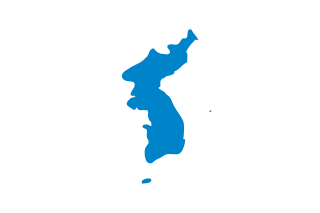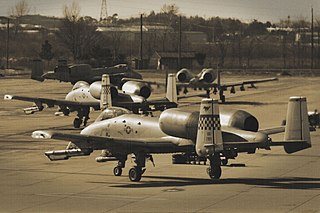
Korea is a peninsular region in East Asia. Since 1945, it has been divided at or near the 38th parallel, with North Korea comprising its northern half and South Korea comprising its southern half. Korea consists of the Korean Peninsula, Jeju Island, and several minor islands near the peninsula. The peninsula is bordered by China (Manchuria) to the north and Russia to the northeast, across the Amrok and Duman rivers. It is separated from Japan to the southeast by the Korea Strait.

Korean is the native language for about 80 million people, mostly of Korean descent. It is the official and national language of both North Korea and South Korea, but over the past 75 years of political division, the two Koreas have developed some noticeable vocabulary differences. Beyond Korea, the language is recognised as a minority language in parts of China, namely Jilin Province, and specifically Yanbian Prefecture and Changbai County. It is also spoken by Sakhalin Koreans in parts of Sakhalin, the Russian island just north of Japan, and by the Koryo-saram in parts of Central Asia. The language has a few extinct relatives which—along with the Jeju language (Jejuan) of Jeju Island and Korean itself—form the compact Koreanic language family. Even so, Jejuan and Korean are not mutually intelligible with each other. The linguistic homeland of Korean is suggested to be somewhere in contemporary Manchuria. The hierarchy of the society from which the language originates deeply influences the language, leading to a system of speech levels and honorifics indicative of the formality of any given situation.

The Treaty of Shimonoseki, also known as the Treaty of Maguan in China and Treaty of Bakan in the period before and during World War II in Japan, was a treaty signed at the Shunpanrō hotel, Shimonoseki, Japan on April 17, 1895, between the Empire of Japan and Qing China, ending the First Sino-Japanese War. The peace conference took place from March 20 to April 17, 1895. This treaty followed and superseded the Sino-Japanese Friendship and Trade Treaty of 1871.

The First Sino-Japanese War was a conflict between China and Japan primarily over influence in Korea. After more than six months of unbroken successes by Japanese land and naval forces and the loss of the port of Weihaiwei, the Qing government sued for peace in February 1895.
Baron Grantchester, of Knightsbridge in the City of Westminster, is a title in the Peerage of the United Kingdom. It was created on 30 June 1953 for the banker and Liberal politician Alfred Suenson-Taylor. As of 2019, the title is held by his grandson, the third Baron, who succeeded his father in 1995. In 2003, he replaced the deceased Lord Milner of Leeds as one of the ninety elected hereditary peers that are allowed to remain in the House of Lords after the passing of the House of Lords Act 1999. Lord Grantchester sits on the Labour benches.

The Japanese invasions of Korea, commonly known as the Imjin War, involved two separate yet linked invasions: an initial invasion in 1592, a brief truce in 1596, and a second invasion in 1597. The conflict ended in 1598 with the withdrawal of Japanese forces from the Korean Peninsula after a military stalemate in Korea's southern provinces.
Unequal treaty is the name given by the Chinese to a series of treaties signed during the 19th and early 20th centuries, between China and various Western powers, and the Empire of Japan. The agreements, often reached after a military defeat or a threat of military invasion, contained one-sided terms, requiring China to cede land, pay reparations, open treaty ports, give up tariff autonomy, legalise opium import, and grant extraterritorial privileges to foreign citizens.

Wokou, which literally translates to "Japanese pirates", were pirates who raided the coastlines of China and Korea from the 13th century to the 16th century. The wokou came from Japanese, Korean, and Chinese ethnicities which varied over time and raided the mainland from islands in the Sea of Japan and East China Sea. Wokou activity in Korea declined after the Treaty of Gyehae in 1443, but continued in Ming China and peaked during the Jiajing wokou raids in the mid-1500s, but Chinese reprisals and strong clamp downs on pirates by Japanese authorities saw the wokou virtually disappear by the 1600s.

Philip Ahn was an American actor and activist of Korean descent. With over 180 film and television credits between 1935 and 1978, he was one of the most recognizable and prolific Asian-American character actors of his time. He is widely regarded as the first Korean American film actor in Hollywood.

The Uber Cup, sometimes called the World Women's Team Championships, is a major international badminton competition contested by women's national badminton teams. First held in 1956–1957 and contested at three year intervals, it has been contested every two years since 1984 when its scheduled times and venues were merged with those of Thomas Cup, the world men's team championship. In 2007, the Badminton World Federation decided to have Thomas and Uber Cup finals separated again but the proposal was ultimately abandoned. The Uber Cup is named after a former British women's badminton player, Betty Uber, who in 1950 had the idea of hosting a women's event similar to the men's. She also made the draw for the 1956–1957 inaugural tournament, which took place at Lytham St. Annes in Lancashire, England.

The East Asian cultural sphere, also known as the Sinosphere, the Sinic world, the Sinitic world, the Chinese cultural sphere, or the Chinese character sphere, encompasses multiple countries in East Asia and Southeast Asia that were historically influenced by Chinese culture. The East Asian cultural sphere is made up of several countries and territories: Mainland China, Taiwan, Hong Kong, Macau, Japan, South Korea, North Korea, and Vietnam. Other definitions may include Mongolia and Singapore, because of limited historical Chinese influences or increasing modern-day Chinese diaspora. The East Asian cultural sphere is not to be confused with the Sinophone world, which includes countries where the Chinese-speaking population is dominant.

Choe Yong-gon was the Supreme Commander of the Korean People's Army from 1948 to 1950, North Korean defence minister from 1948 to 1957, and the Chairman of the Standing Committee of the Supreme People's Assembly of the Democratic People's Republic of Korea of the Supreme People's Assembly of North Korea from 1957 to 1972.

USS Lenawee (APA-195) was a Haskell-class attack transport in service with the United States Navy from 1944 to 1946 and from 1950 to 1967. She was scrapped in 1975.
USS Pender County (LST-1080) was an LST-542-class tank landing ship in the United States Navy. She is now ROKS Hwa San (LST-816), a museum ship in Taiwan.

Zhao Nanqi, or Cho Nam-gi in Korean, was a three star General of the People's Republic of China and Vice Chairman of the Chinese People's Political Consultative Conference from 1998 to 2003, and Vice-chairman of the 5th National People's Congress.

East Asia is the easternmost region of Asia, which is defined in both geographical and ethno-cultural terms. The modern states of East Asia include China, Japan, Mongolia, North Korea, South Korea, and Taiwan. Hong Kong and Macau, two small coastal quasi-dependent territories located in the south of China, are officially highly autonomous but are under Chinese sovereignty. Japan, Taiwan, South Korea, Mainland China, Hong Kong, and Macau are among the world's largest and most prosperous economies. East Asia borders Siberia and the Russian Far East to the north, Southeast Asia to the south, South Asia to the southwest, and Central Asia to the west. To the east is the Pacific Ocean and to the southeast is Micronesia.

The 51st Operations Group is the operational flying component of the United States Air Force 51st Fighter Wing, stationed at Osan Air Base, South Korea.

This is a list of the Hong Kong national football team results from 1954 to 1969.

Kim Kwang-hyop was a politician anti-Japanese activist and a military officer and politician of the Democratic People's Republic of Korea. He served as Chief of the General Staff of the Korean People's Army.















